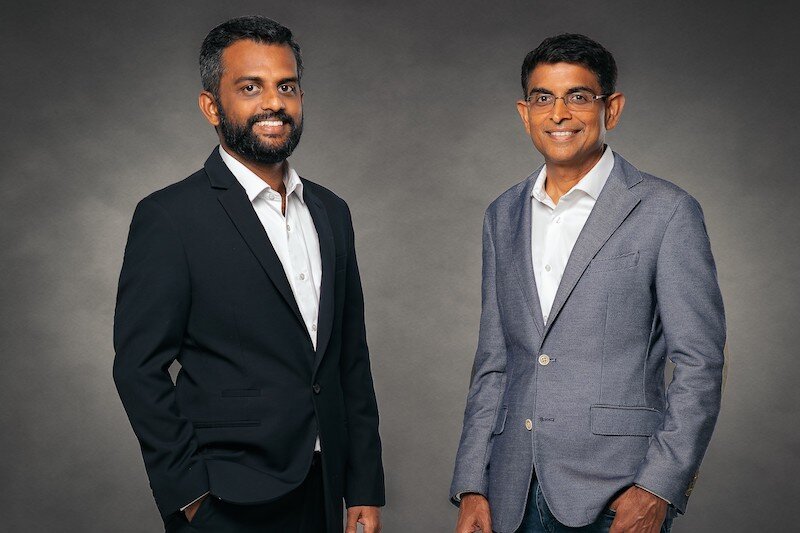The retail technology year at a glance: May 2020
RTIH takes a look at the retail technology space during May and rounds up the winners, losers and major developments.
Good month for…
Alibaba Group’s hefty investment in smart speaker technology will cement its leadership position in China's e-commerce market, according to GlobalData.
The company will stump up US$1.4 billion to develop an artificial intelligence and Internet of Things ecosystem that supports its smart speaker, the Tmall Genie, which launched in 2017.
Also in May, Alibaba Group reported forecast beating fourth quarter revenues and profits, as more people shopped online due to coronavirus lockdowns.
Tesco CTO Guus Dekkers and CEO Dave Lewis praised the grocery giant’s technology team for their hard work during the coronavirus outbreak.
Fast fashion retailer boohoo raised £198 million as it sought to “take advantage of numerous opportunities that are likely to emerge in the global fashion industry over the coming months”.
Chinese tech giant Tencent bought a 5% stake, worth around A$390 million, in Australian buy now, pay later specialist Afterpay.
The UK online food and grocery retail market was set to grow 25.5% in 2020, gaining an extra £1.9 billion, as the likes of Tesco, Sainsbury’s and Waitrose responded to the coronavirus outbreak by expanding fulfilment capacity.
41% of Brits were shopping at their local, independent stores more regularly than they did before the coronavirus crisis, according to research by price comparison site finder.com.
Back Market, which operates a marketplace for refurbished smartphones and electronics devices. announced a new $120 million funding round from Goldman Sachs, Aglaé Ventures and Eurazeo Growth.
Australian retailer Coles secured sites in Sydney and Melbourne for its first two Ocado Solutions powered customer fulfilment centres. These will commence operation in FY23.
Prior to the coronavirus outbreak, Iceland was delivering 100,000 online orders per week. Its network was now in place to deliver over 500,000 and it continued to add more.
Bitcoin rewards startup Lolli closed a $3 million Seed II funding round led by Pathfinder, the early-stage investment arm of Peter Thiel’s Founders Fund.
Shopic, a computer vision startup providing check-out free systems to grocery retailers, closed an $7.6 million Series A funding round.
Consumers around the world were switching to contactless payments to help with social distancing during the coronavirus outbreak, according to RBR.
Mobile commerce startup Tapcart closed a $10 million Series A funding round.
Digital experience analytics venture Contentsquare announced a $190 million Series D funding round, bringing total funding to date to $310 million.
Panasonic made an undisclosed investment in AI and supply chain specialist Blue Yonder.
Dixons Carphone started to offer a contactless kerbside collection service at 20 of its Currys PC World stores in England.
Swiss mobile computer vision and augmented reality solutions specialist, Scandit, raised $80 million in a Series C round led by G2VP, a Silicon Valley venture capital firm of former Kleiner Perkins partners.
John Lewis said it would begin to reopen its stores for customers from 15th June, in line with government guidelines for non-essential retailers. It was planning to kick things off with its Poole and Kingston department stores, followed by 11 others on 18th June.
Bad month for…
After a long period of decline, JC Penney finally bowed to the inevitable and filed for bankruptcy protection.
Many Sainsbury’s online customers were not impressed by the grocery giant’s 30 Dish Challenge initiative.
UK retailers without an e-commerce presence needed to overhaul their business models as Brits planned to spend more online in a post-Covid-19 world, according to GlobalData.
Also in May…
Non essential retailers were given the green light to start reopening in June as Prime Minister Boris Johnson moved to ease the coronavirus lockdown.
Morrisons was set to open its first ever Nutmeg home and clothing concept store.
Shopify, the e-commerce platform provider that has emerged as the anti-Amazon, morphed into a digital by default company.
As a result of the coronavirus outbreak, it would keep its offices closed until 2021, CEO Tobi Lutke, said on Twitter, “so that we can rework them for this new reality”.
Amazon moved its annual Prime Day sales extravaganza as the Covid-19 pandemic increased demand on the e-commerce giant’s warehouses.
Walmart pulled the plug on Jet.com after acquiring the online venture for $3 billion in 2016.
Facebook made a major new push into the e-commerce space with the launch of Shops.
Amazon was said to be in talks to acquire bankrupt J.C. Penney.
Aldi UK partnered with Deliveroo to test out grocery home delivery for the first time.
Sainsbury’s rolled out its Chop Chop service to 20 cities across the UK, bringing fast grocery deliveries by bike to customers outside of London for the first time.
A report from John Lewis and Waitrose revealed how Brits’ behaviour had changed during the coronavirus outbreak.
The GMB union called on the Employment Select Committee to seek evidence from Tim Bray, the Amazon Vice President who resigned over the sacking of workers amid the coronavirus outbreak.
Marks and Spencer launched its first home delivery service, just ahead of its highly touted partnership with Ocado.
Waitrose opened a six acre customer fulfilment centre in Enfield, North London, as it looked to double its online grocery orders in the capital by September.
Asda trialled a virtual queuing system as part of coronavirus pandemic social distancing measures.










